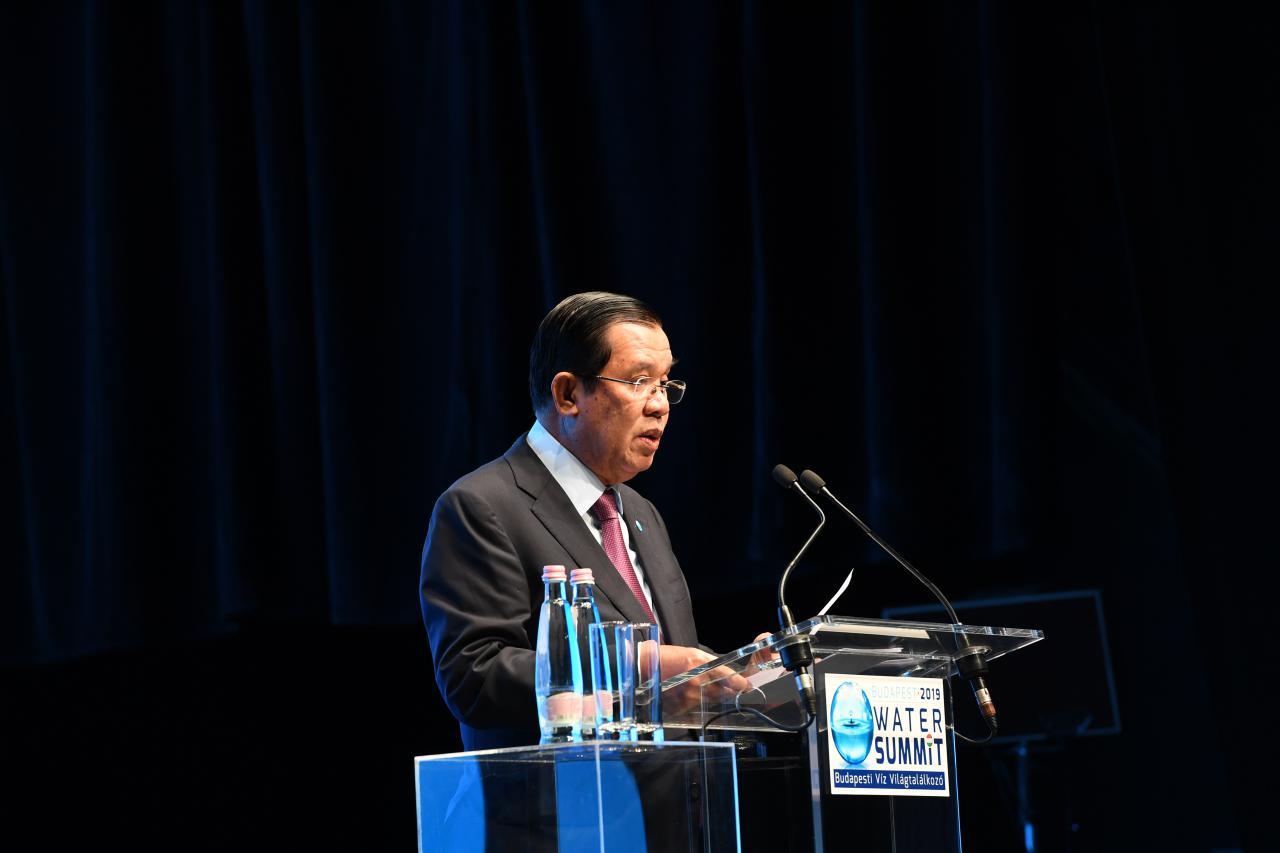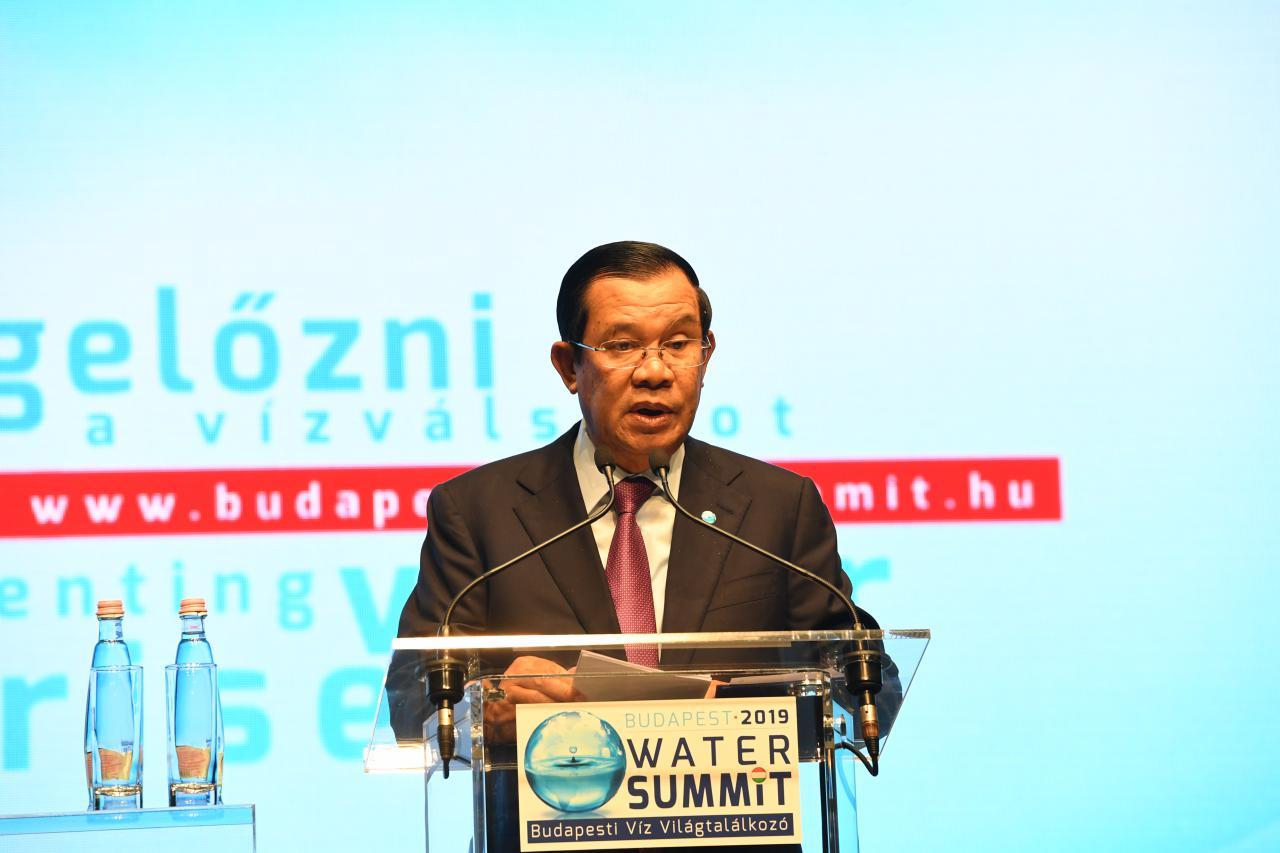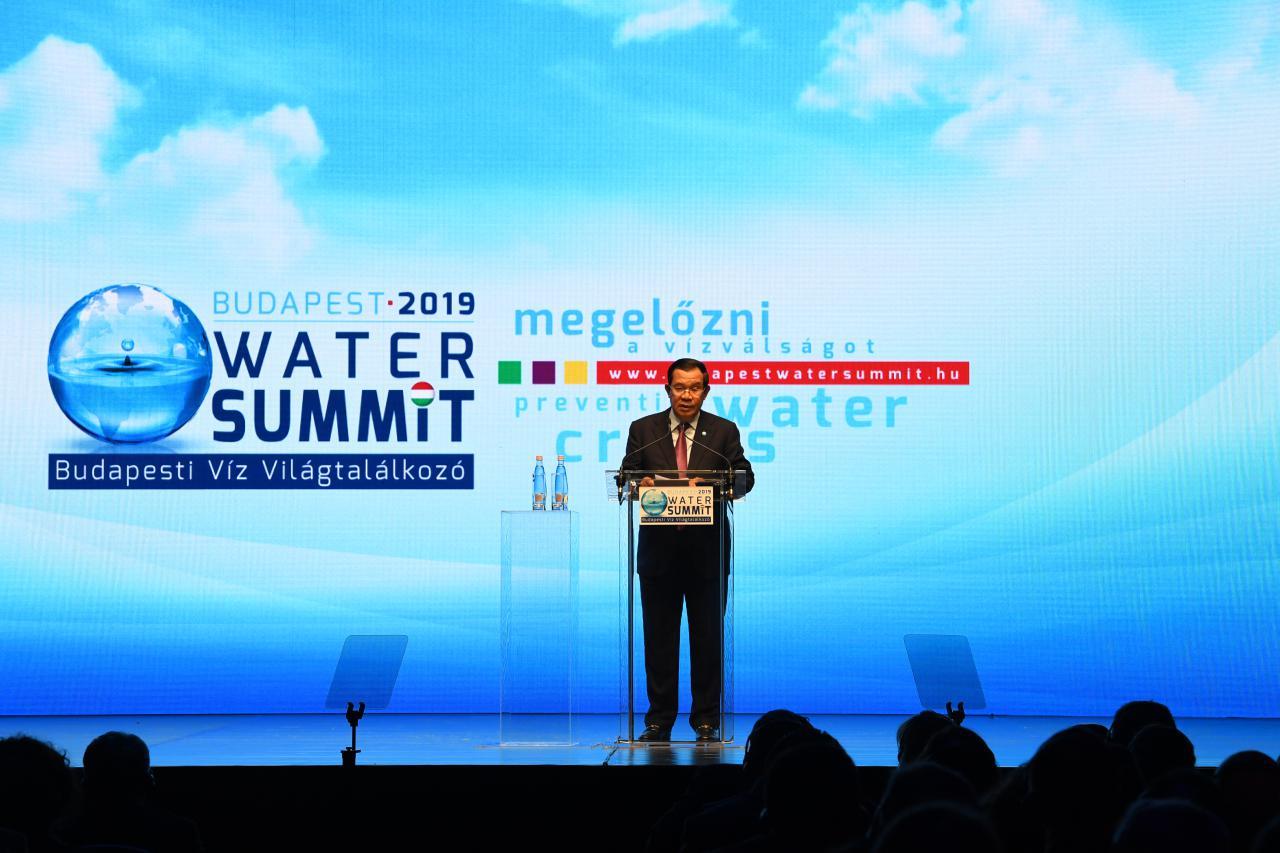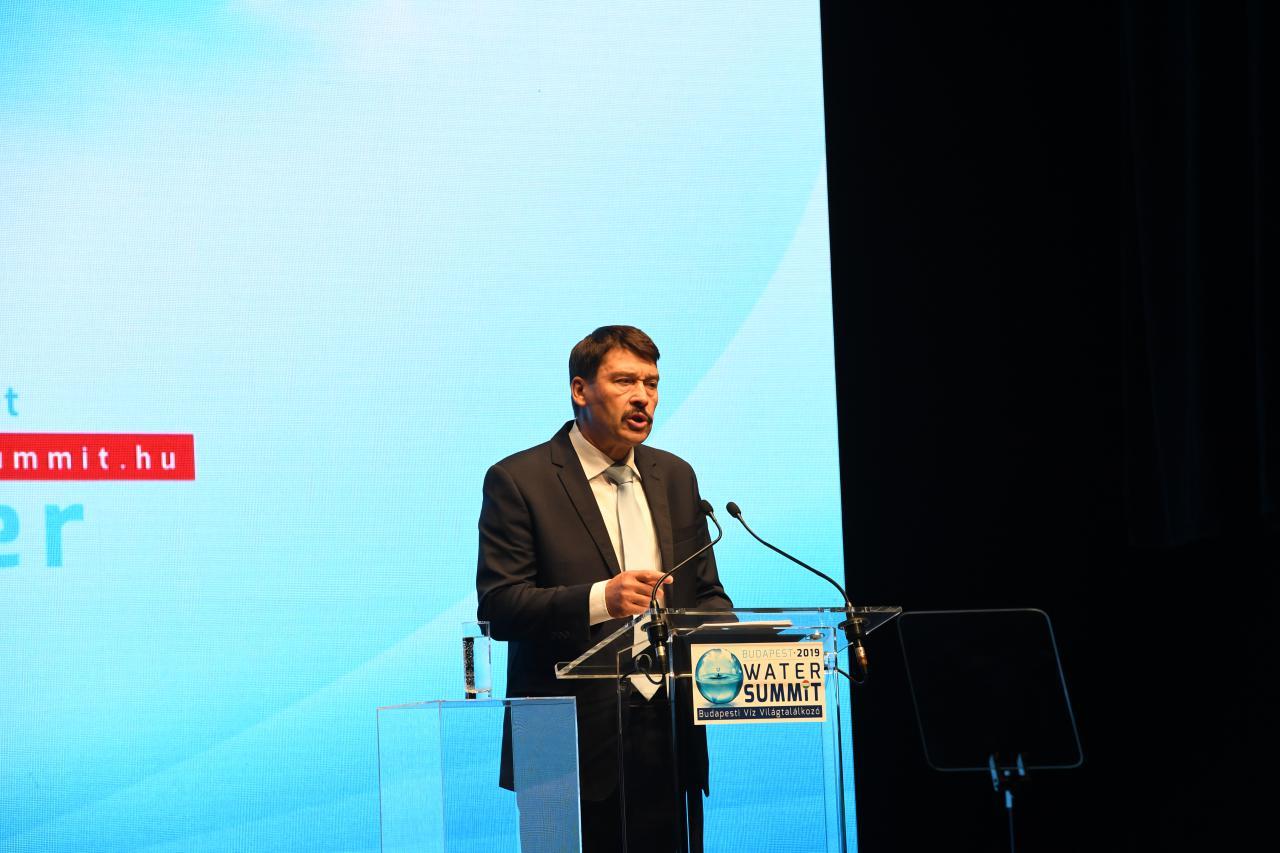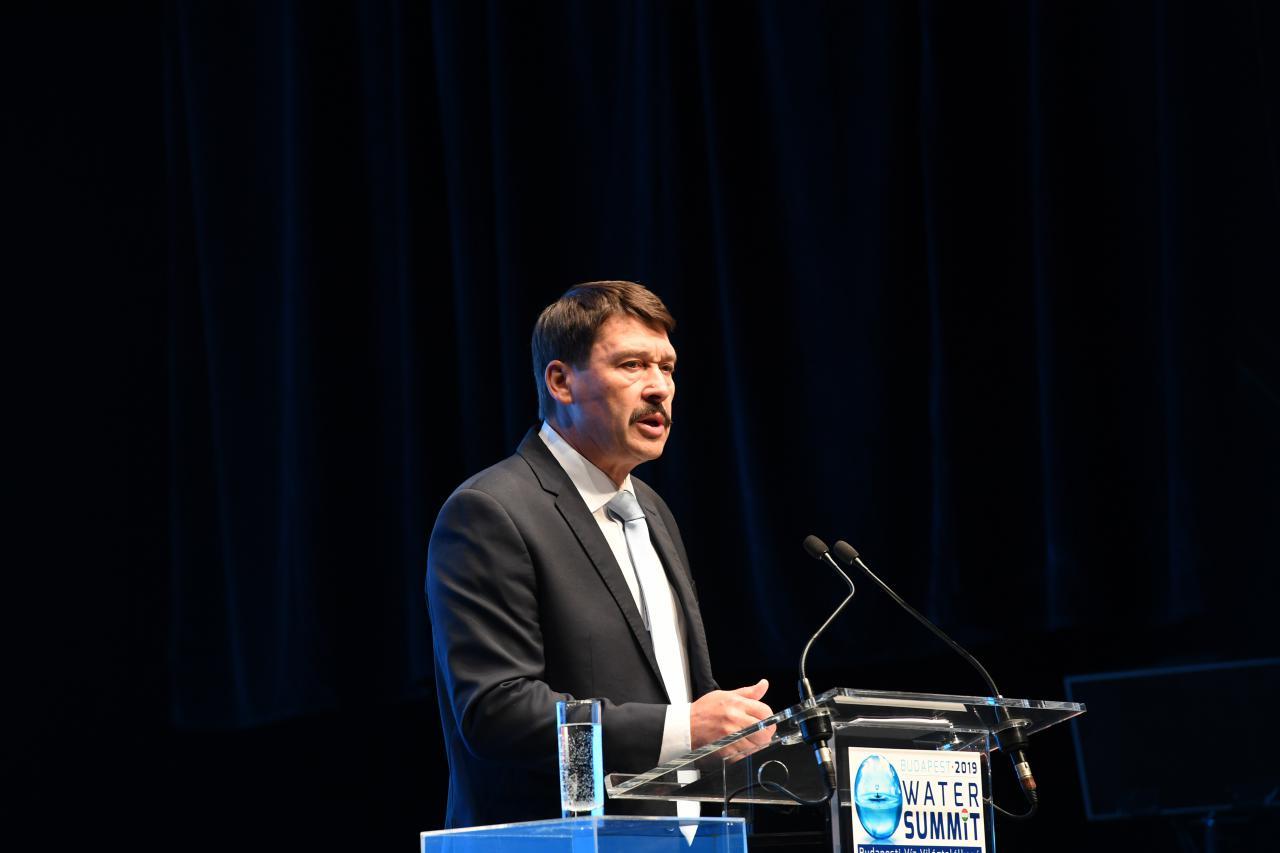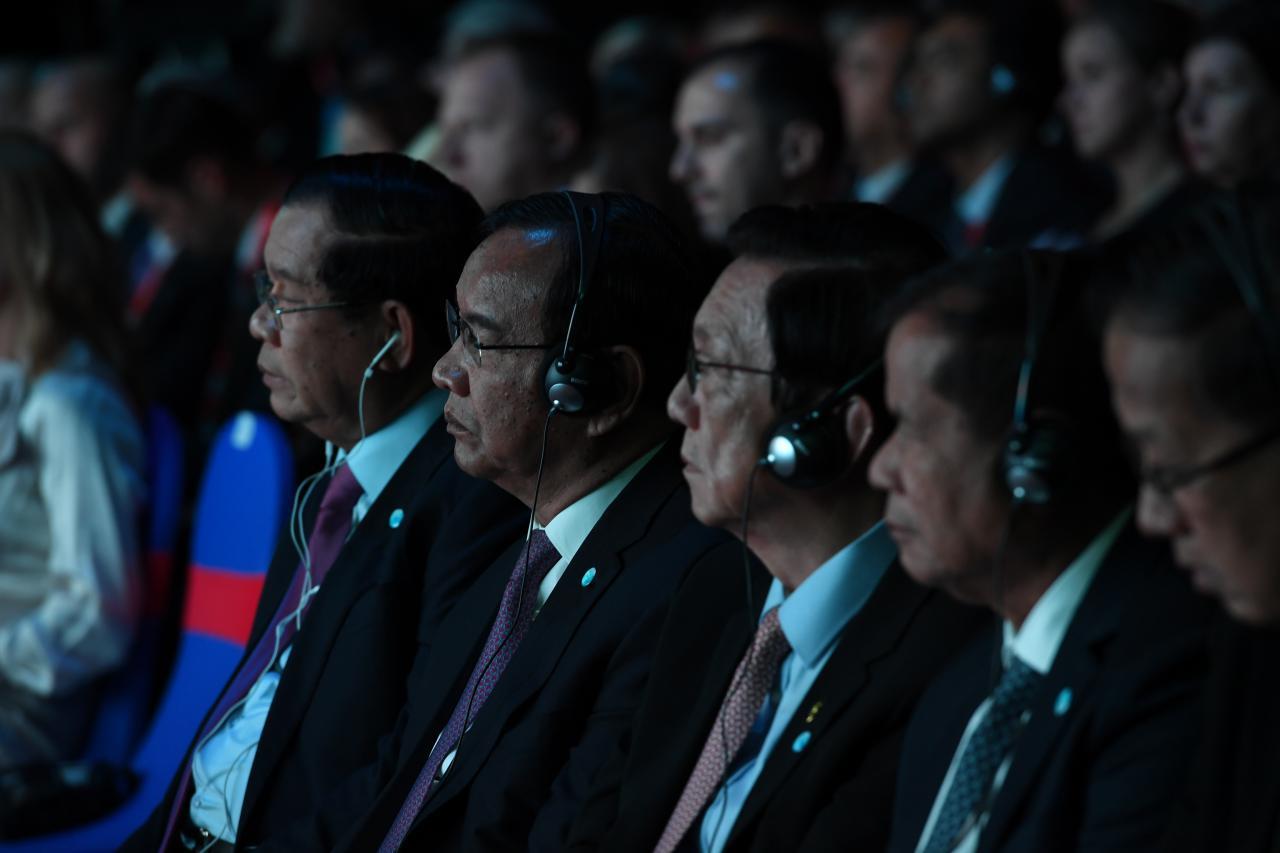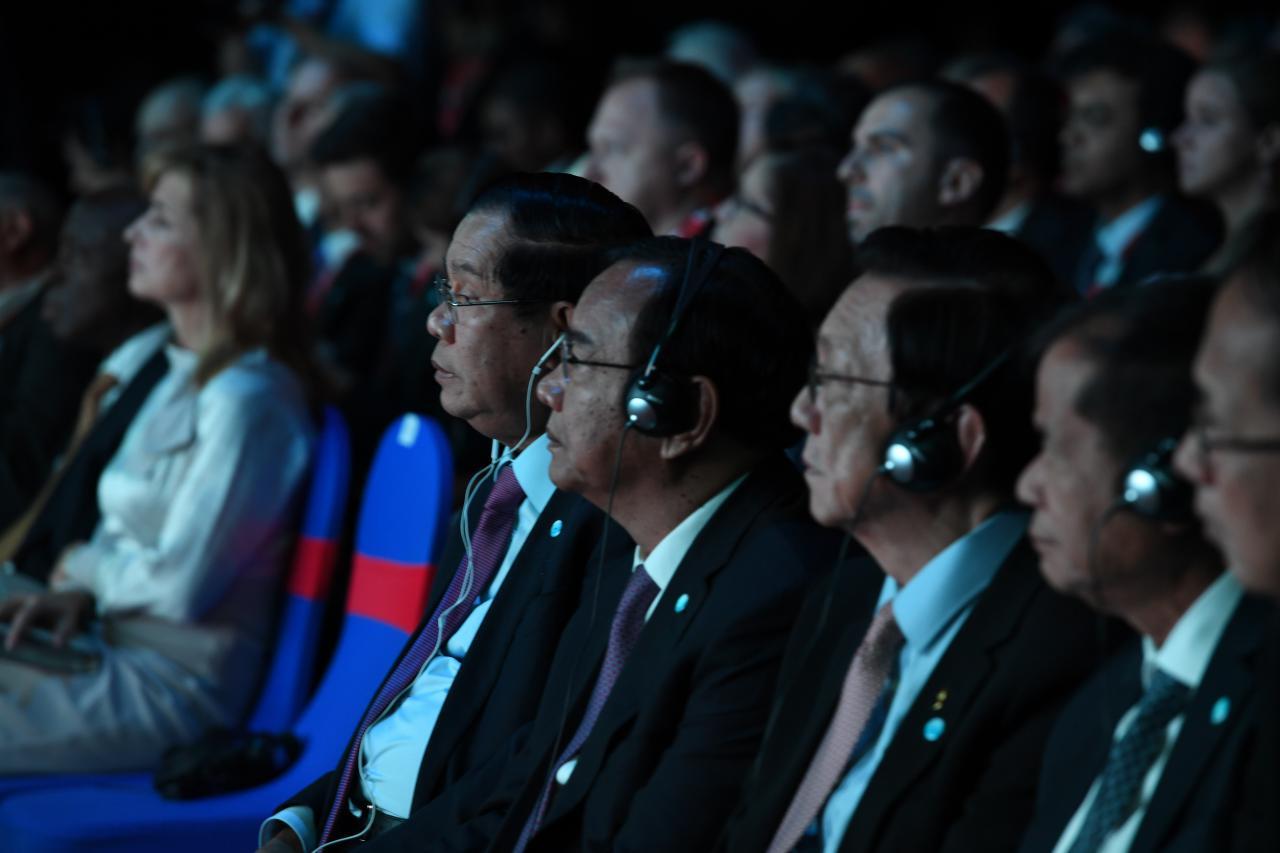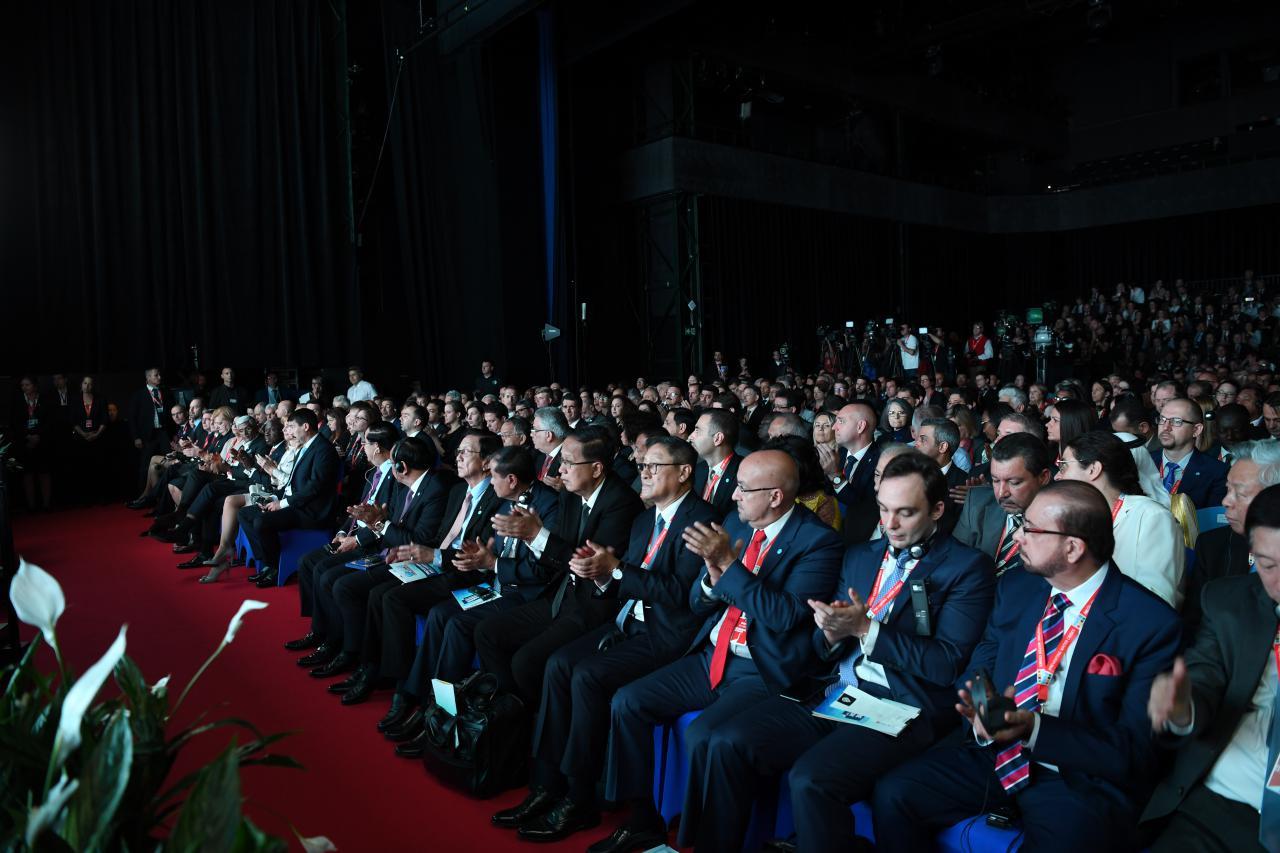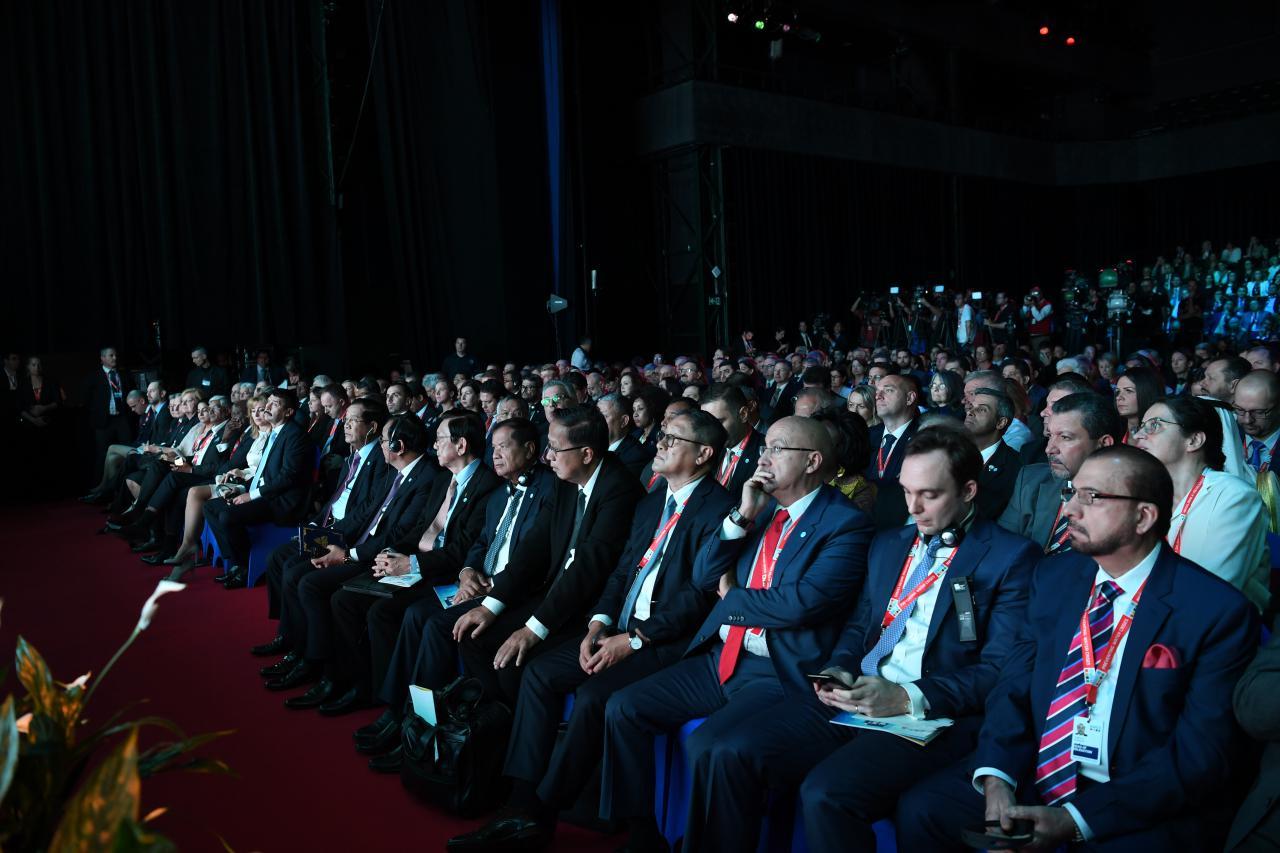Budapest (FN), Oct. 15 – Cambodian Prime Minister Hun Sen has shared some ideas to ensure sustainable and smart utilization of water resources for everyone and for younger generation with the prevention of disputes between countries, addressing at the 3rd Water Summit in Budapest, Hungary, from 15-17 October 2019.
Convened under the theme “Preventing Water Crises”, Prime Minister introduced water issues by stating that, “In the current global context of global warming, climate change, population growth, urbanization, growing industrial development, increasing demand for water, decline in water quality and quantity, conflict over trans-boundary water, low access to clean water and sanitation, limited awareness and insufficient public investment in water, the water issue has been worsening that might lead to a crisis in the future.”
In order to address these challenges and associated risks in a holistic and effective way, especially under the Framework of 2030 Sustainable Development Goals, Prime Minister highlighted some priorities related to the approach for management, governance and financing as follows:
First, continue with the initiatives to create a new global political architechture for water resources management so as to mobilize support from all stakeholders, nurture water-saving spirit as well as avoid water-polluting activities, and develop strong institutional governance and water policy with harmony and transparency.
Second, enhnace coordination, cooperation and accountability on water issue under the global framework, with the United Nations as an effective guidue in addressing unversal issue and and in implementing the 2030 Global Agenda as well as the Paris Agreement.
Third, strengthen coordination and cooperation at both technical and policy levels on the issues of water, energy, climate change, food, health and biodiversity conservation aiming to promote and strengthen the governance and joint management of water resources through inter-ministerial coordination at all levels as well as engaging all relevant actors and all water users.
Fourth, enhance commitment at national level to eliminate the source of contamination of water by enhancing wastewater treatment capacity, increasing storage capacity of contaminated water and strengthening mechanisms to prevent all forms of water pollution.
Fifth, create an inter-linkage of water-related policies by strengthening the design of institutional mechanisms, tightening regulations and legal frameworks.
Sixth, encourage the development of new approaches on the sharing of benefits and responsibilities to maintain water sources, as well as planning and operation of infrastructure on transboundary water in order to prevent eventual conflicts and ensure sustainability of shared water usage.
Seventh, increase public investment in water management and access to clean water and sanitation in line with the goals set in Sustainable Development Goals (SDGs).
Eight, engage in the building of supportive environment for innovative business models that provides incentive to sustainable financing for providing clean water service by ensuring affordable prices with high hygiene standards in line with prevention and improvement for sustainable water and soil ecosystem; and
Finally, strengthen capacity in monitoring water-related issues under the framework of Sustainable Development Goals, as well as encourage the effort to collect water-related data and analysis at all levels with a commitment on political and financial support.
=FRESH NEWS
